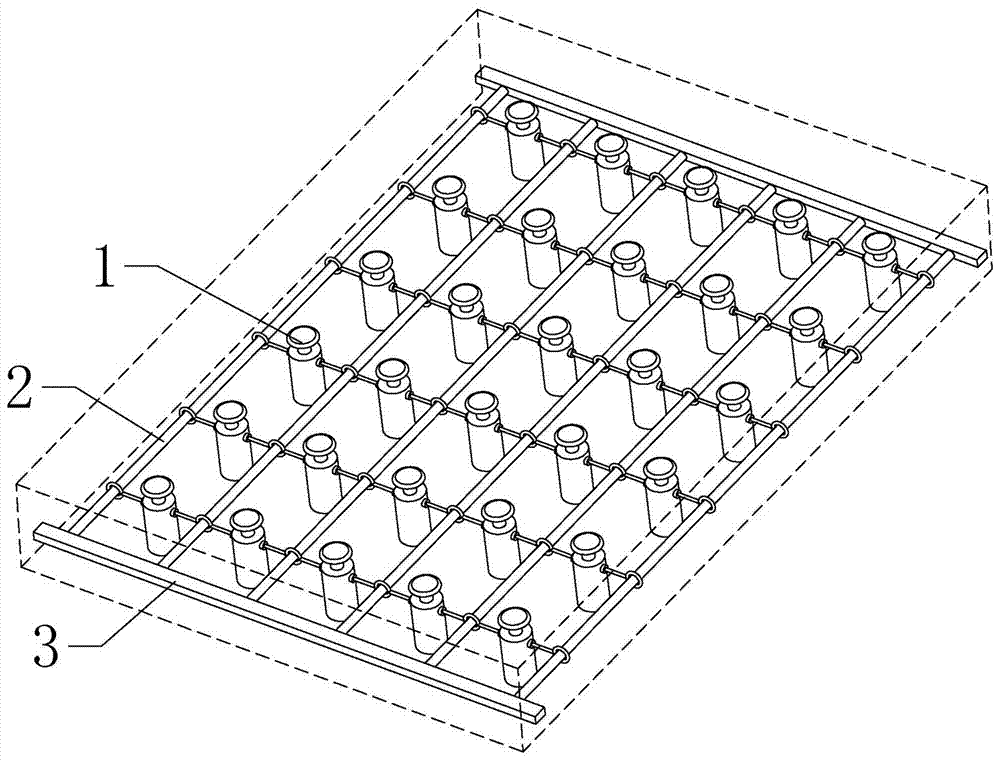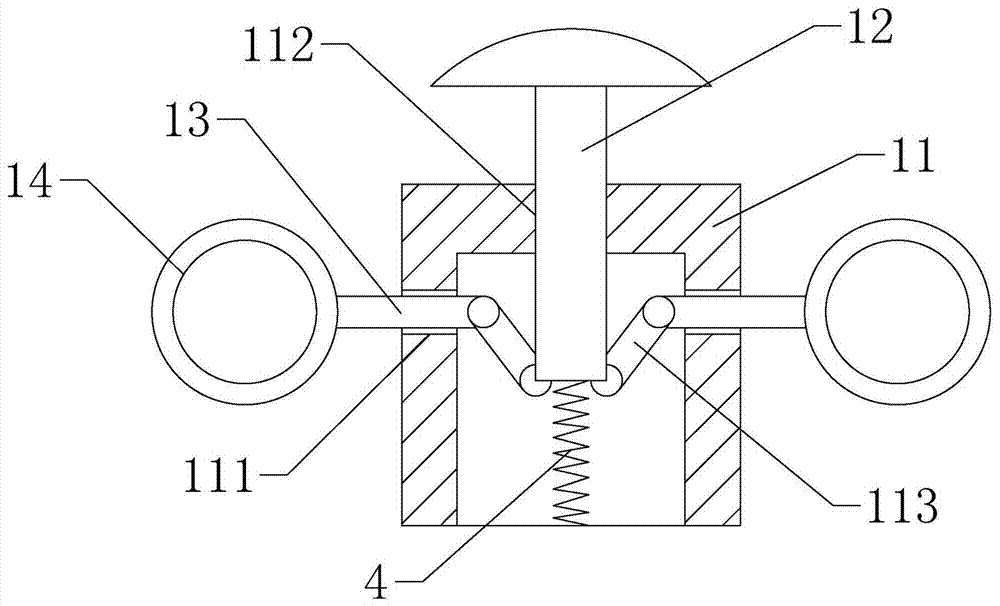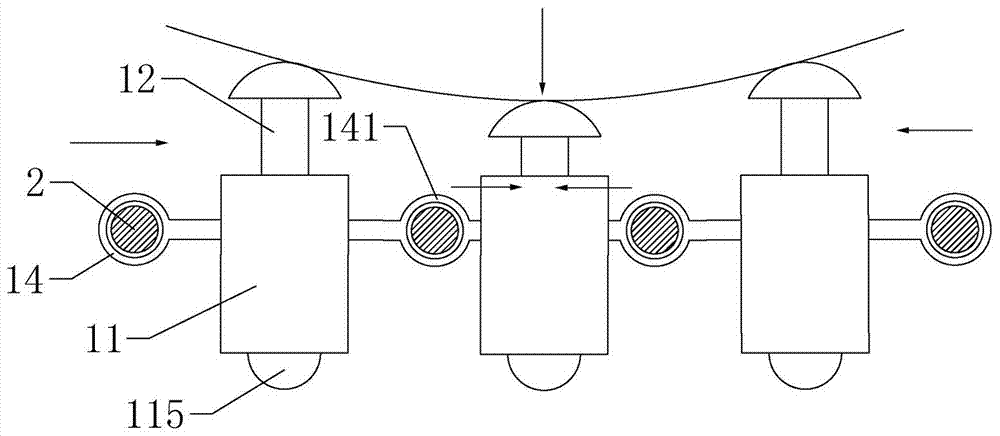Self-adjusting mechanism for magnetic field position of permanent magnet magnetic therapy mattress
A permanent magnet and self-adjusting technology, which is applied to the magnetic field generated by permanent magnets, magnetic therapy, treatment, etc., can solve the problems of weakening the effect of magnetic therapy and unreasonable position, and achieve the effect of good magnetic therapy and dense magnetic field.
- Summary
- Abstract
- Description
- Claims
- Application Information
AI Technical Summary
Problems solved by technology
Method used
Image
Examples
Embodiment 1
[0030] according to Figure 1 ~ Figure 3 As shown, a magnetic field position self-adjusting mechanism for a permanent magnet magnetic therapy mattress includes: a plurality of pressure response mechanisms 1 and a plurality of magnet sliders 2 and slider rails 3 for sliding magnet sliders 2, pressure The reaction mechanism 1 and the magnet slider 2 are arranged at intervals, and the two ends of the magnet slider 2 are arranged in the slider track 3;
[0031] The pressure response mechanism 1 includes a support body 11, a compression rod 12 and a retraction rod 13, a return spring 4 is arranged between the support body 11 and the compression rod 12, and the two sections of the retraction rod 13 are respectively an A end and a B end, A The end is provided with an insertion ring 14, and the B end is connected with the support body 11 or the pressure rod 12. The magnet slider 2 is inserted into the insertion ring 14. The distance from the center location.
[0032] according to ...
Embodiment 2
[0038] The difference from the above-mentioned embodiment 1 is that, according to Figure 4 As shown, the compression rod 12 is plugged outside the support body 11 , and the end of the contraction rod 13B is hinged to the outer surface of the compression rod 12 .
[0039] In this embodiment, after the compression rod 12 is subjected to a pressure drop, the end of the shrink rod 13A will be retracted toward the center of the pressure response mechanism 1, and the horizontal height of the magnet slider 2 will not change under the constraints of the slider track 3. Collapse between the same horizontal plane. It can also play the role of concentrating the magnetic field to the pressure sinking area.
Embodiment 3
[0041] The difference from the above-mentioned embodiment 1 is that, according to Figure 5 As shown, two groups of shrink rods 13 are connected outside the compression rod 12, each group includes two shrink rods 13, the two groups of shrink rods 13 are perpendicular to each other and the lengths of the two groups of shrink rods 13 are different, correspondingly, the magnet slide rod 2 also Divided into a horizontal group and a vertical group, there is a height difference between the horizontal group and the vertical group, and a spherical pulley 115 is provided at the bottom of the support body 11 .
[0042] In this embodiment, two groups of magnet sliders distributed in upper and lower layers change the magnetic field distribution from a single linear direction to a grid distribution, which improves the magnetic therapy effect.
PUM
 Login to View More
Login to View More Abstract
Description
Claims
Application Information
 Login to View More
Login to View More - Generate Ideas
- Intellectual Property
- Life Sciences
- Materials
- Tech Scout
- Unparalleled Data Quality
- Higher Quality Content
- 60% Fewer Hallucinations
Browse by: Latest US Patents, China's latest patents, Technical Efficacy Thesaurus, Application Domain, Technology Topic, Popular Technical Reports.
© 2025 PatSnap. All rights reserved.Legal|Privacy policy|Modern Slavery Act Transparency Statement|Sitemap|About US| Contact US: help@patsnap.com



